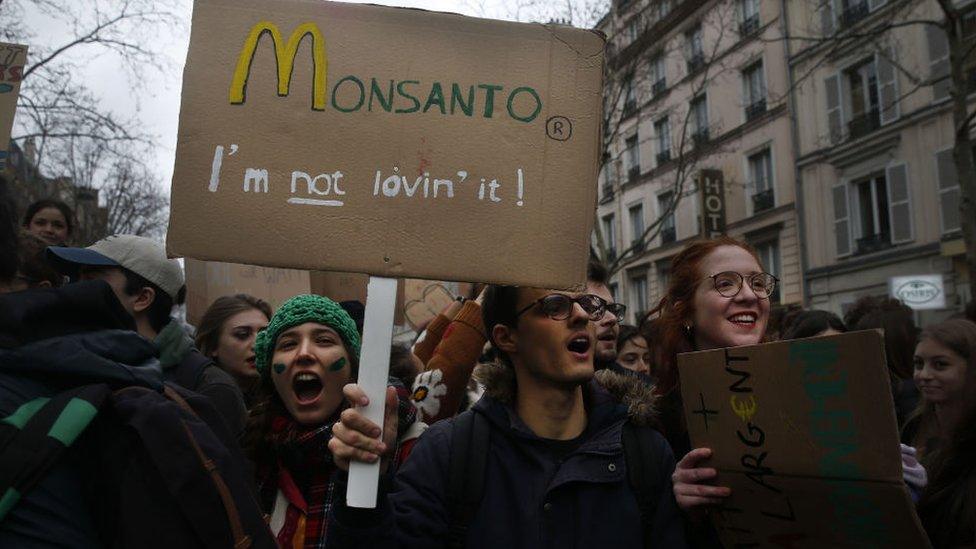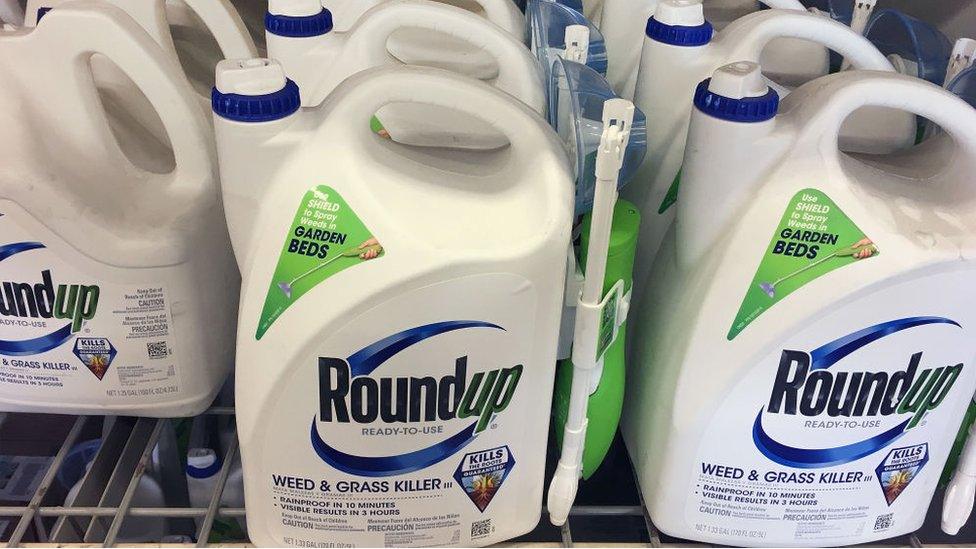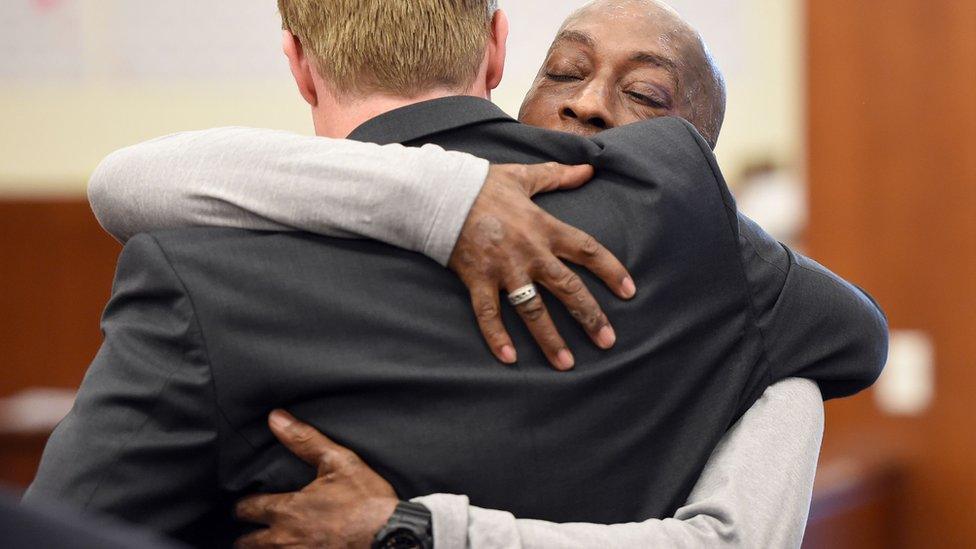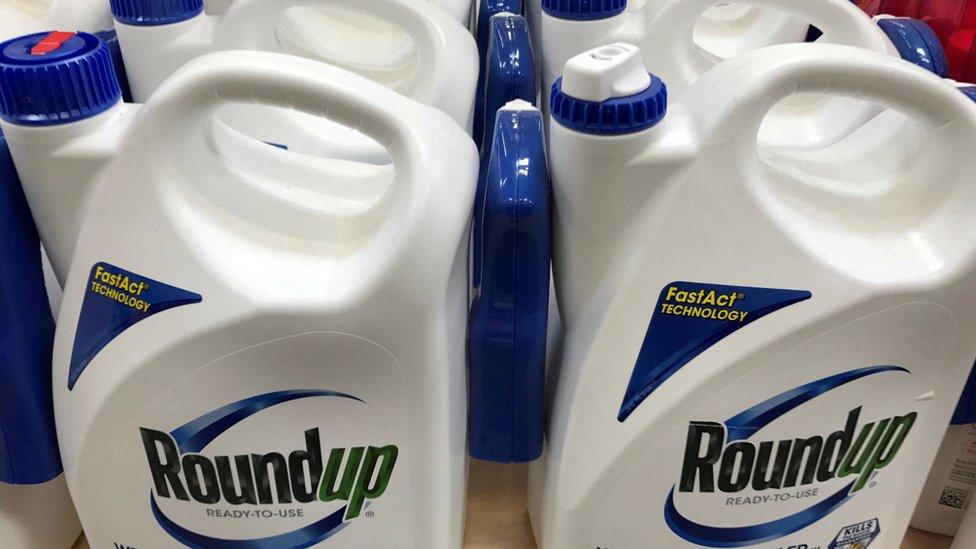Bayer Monsanto: PCB maker ordered to pay $857m for toxic leaks
- Published

Monsanto is already facing a large legal bill over its glyphosate-based weed killer Roundup
Chemical firm Monsanto is to pay $857m (£676m) to seven people who said they were affected by chemicals leaking from light fittings at a US school.
In a court case, the plaintiffs said chemicals known as polychlorinated biphenyls (PCBs) made them sick.
A jury found the company negligent and liable for selling the PCBs used in the Sky Valley Education Centre in Monroe in Washington state.
The chemicals were not safe and lacked warnings, according to the verdict.
PCBs are human-made chemicals that were once used as lubricants, coolants, or to insulate electrical equipment.
They could be found in other common products including carbon copy paper, caulking and paint.
The US government banned the chemicals in 1979, after discovering links to cancer.
Plaintiffs included five former students and two parent volunteers, who spent time at the school northeast of Seattle, between seven and 18 years ago.
They complained of neurological, endocrine system and other health concerns.
Monsanto - which is owned by German pharmaceutical company Bayer - was ordered to pay $73 million in compensatory damages, and $112 million to each of the seven plaintiffs in punitive damages.
The company said it stopped producing PCBs in 1977, and had warned the school since the 1990s repeatedly to have the light fixtures retrofitted, but that those warnings were ignored.
In a statement, the firm said it plans to have the verdict reduced or overturned, and called the outcome "constitutionally excessive".
Monsanto had said blood, air and other tests showed employees were not exposed to unsafe levels of PCBs at the school.
The chemicals firm is appealing other cases related to the school, in which it has been ordered to pay $870 million.
Employees, students and others have alleged in a number of lawsuits that exposure to PCBs at the Sky Valley centre gave them cancer, thyroid conditions and other health problems.
This is the latest setback for the company, which is already facing a hefty legal bill, after losing court cases over its glyphosate-based weed killer Roundup.
Germany's Bayer group - which makes Aspirin - acquired Monsanto in 2018, in a $63 billion deal.
But Bayer also inherited Monsanto's legal cases over Roundup, and has since faced a number of lawsuits in the United States over claims it causes cancer.
Of the 160,000 cases brought against the group in relation to the weed killer, 113,000 have been settled or dismissed, according to Bayer.
Bayer contests the allegations but has put aside $16 billion to cover the cases.
- Published25 June 2020

- Published11 August 2018

- Published21 June 2022
